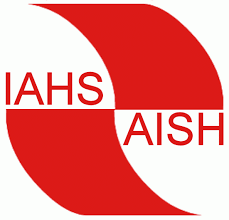|
W7 Extreme events: links between science and practice |
| Convener: Ennio Ferrari | Co-Conveners: David Hannah , Maria-Carmen Llasat , Enrica Caporali , Radu Drobot , Yves Tramblay , Elena Volpi , Abou Amani , Anil Mishra |
|
Oral programme
/ Tue, 11 Jul, 08:30–17:10
/ Room Woodrooms
Poster programme
/ Attendance Tue, 11 Jul, 15:50–17:30
/ Room B2
|
Supporting commission(s) / organisations: ICSW, ICSH, Panta Rhei, UNESCO-IHP
Scientists coping with water-related disasters associated to extreme events mainly aim at building procedures for reducing the vulnerability of people and assets exposed to high risks. Nevertheless, the link between science and practice mostly suffers for gaps, inconsistencies and time delays. Some strategies for efficiently evaluating and managing risks involve adjustments to current activities, while others require transformation or fundamental change. Serious efforts for correctly transferring risk information from scientists to end-users at any spatial scale are expected. Interactions among researchers, stakeholders and practitioners should evolve into the spreading of a real risk awareness among people, concerning preparedness to absorb, recover from, or adapt to actual or potential adverse water-related events. Connections with government and public agencies, local authorities and communities, voluntary groups and individuals have to be strengthened. Further efforts for understanding how information is interpreted in warning communication to local systems and possible potential barriers in embedding in local practice are needed.
The topic will include contributions on: analyses of extreme events at timescales relevant to decision-making; use of remote sensing for advance in understanding and predicting extremes; reduction of uncertainty in estimating extreme events at ungauged sites; advances in transforming raw data to informed decisions; strategies from hazard and risk maps to risk management plans; transfer of knowledge to environmental protection agencies and water utilities; monitoring and communication of extreme events for resources and information sharing; prevention and education of society for improving resilience against extreme events; interaction with local stakeholders for ensuring assistance to vulnerable people. The aims of the topic are to promote interdisciplinary researches and integrated approaches for coping with water-related risks, to discuss effectiveness of scientific outcomes for risk reduction, and to improve knowledge building and communication on extreme events for sharing of resources and information to develop local level resilience.
